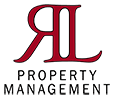 A well-drafted lease agreement protects your interests as a landlord as well as your tenants’. If it’s been some time since you’ve reviewed your lease agreement or if you’re drafting one for the first time, read on for some important clauses to include.
A well-drafted lease agreement protects your interests as a landlord as well as your tenants’. If it’s been some time since you’ve reviewed your lease agreement or if you’re drafting one for the first time, read on for some important clauses to include.
5 Essential Terms to Include in Your Rental Lease Agreements
Rental lease agreements are legal contracts that outline the rights and responsibilities of tenants and landlords. The more specific and detailed they are, the fewer issues you’re likely to encounter. A strong lease agreement also clarifies who is responsible for what in terms of the rental unit and indicates all fees and penalties.
Below are some areas to focus on if you want to strengthen your lease agreements. Not all of these areas are included in many default lease agreements, but, as property managers in Columbus, we’ve found to be particularly important.
- Maintenance responsibility – Your lease agreement should clearly indicate who is responsible for what, especially when it comes to something that sits more on the margins as it’s these gray areas that can often lead to conflict. Putting them in your lease agreement is an easy way to thwart them.
A common example is a garbage disposal. If the garbage disposal stops working, we specify in our lease that it’s the tenant’s responsibility to clear it if there’s a clog. Conversely, if the garbage disposal has reached the end of its life and is no longer working, then it’s the landlord’s responsibility to take care of the issue.
- Appliance ownership – Appliances are easy to overlook in lease agreements, but even something obvious like those related to property ownership need to be spelled out in the lease – and many default lease agreement templates don’t offer a spot to do so. If you own the refrigerator, dishwasher and range and want them to remain yours in the rental unit, then be sure to indicate that in the rental contract. Otherwise, you might find them walking out the door with your tenants on moving day and have no effective way to enforce it since it’s not in the lease.
- Tenant fees – Determining tenant fees – whether to include them, how much they should be and for what, can be challenging for landlords to nail down. At RL Property Management, we’ve found that fees can be a useful tool especially when used to dissuade certain types of behavior or to compensate the landlord for activities that go above and beyond their normal duties. Whether or not you choose to include fees is up to you, but if you do, it’s imperative that you’re clear about them in your lease agreement.
- The order in which payments are applied – Ideally, the order in which rent payments are applied is something that never really matters. We hope you are receiving a full rent payment plus any utilities or late fees on time, month after month. Unfortunately, this is not always the case. Sometimes tenants do not pay their full balance on time. When this happens, the order in which those payments are appliedbecomes really important.
- Pet policy – Your lease should be very clear in terms of whether pets are allowed (and if so, what kind of pets you permit). If they are not permitted, it’s helpful to write that in big, bold letters. You might also consider having your residents initial next to the pet policy. Additionally, it’s important to remember that pets extend beyond just cats and dogs. If you don’t want chickens, snakes, rodents, birds, fish, or some other pet in your property, be sure to specify that in your policy.
If you have questions about lease agreements, don’t hesitate to get in touch with us at RL Property Management. Our team has decades of experience managing hundreds of properties in the greater Columbus area and is ready to help you be successful with your investment.
